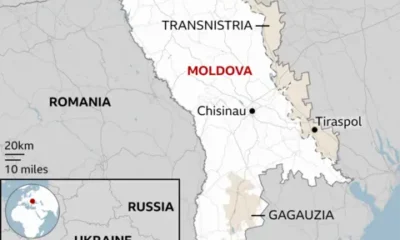
Breaking News
The daughter of Irish emigrants who became ‘Britain’s most powerful woman’

Read more on post .
Sue Gray is at home in Downpatrick, Co Down. Usually, she comes to the St Patrick’s Centre in the town for coffee and a chat with her sister-in-law Ita, or her fellow peer, the former South Down MP Margaret Ritchie. Both were present in the centre last Thursday for what was billed as Gray’s “first full interview about her life and times”.
“This is not something I would normally do,” she said. “I’m here this evening because Caroline [Feeney, event chair] asked me.”
Dubbed “Britain’s most powerful woman” by the online newspaper Politico, Gray spent most of her career in the UK civil service but became a household name when she took charge of the “Partygate” investigation into lockdown gatherings at 10 Downing Street. That investigation contributed to the downfall of then-UK prime minister Boris Johnson. She subsequently became chief of staff for the current prime minister, Keir Starmer.
Though now a peer – she sits in the House of Lords as Baroness Gray of Tottenham – she is also “a local ratepayer”. Her husband, country singer Bill Conlon, is from Portaferry, Co Down. She reminisces about three years running a pub near Newry in the 1980s and how she was looked after by the local community.
“I didn’t know any of them, I was a stranger, but they were absolutely amazing,” she said. “Every night when I would lock up, there was a different person that would lock up with me. It was a great period of my life and I got to really love this place.”
Gray’s parents were both Irish but met in London. Her father Leo was from Belcoo, Co Fermanagh and her mother Anastasia from Kilmeaden, Co Waterford.
Hers was a typical London-Irish childhood. Gray grew up in Tottenham surrounded by aunts, uncles and cousins. She looked forward to summer trips home to the “liberation” of the family farm in Fermanagh.
“My dad had two jobs; he worked all the hours of the day to provide for us,” she recalled. “My mum worked many jobs, she worked in a sweet shop, in a pub . . . and it was really difficult times to be Irish in those days. You would all be familiar with the signs that would have been up outside pubs (saying ”No Irish”).
“We all felt that, but at the same time they embraced Britain, they embraced the jobs and the work it provided for them. They instilled in us hard work, tell the truth and support each other. And I think those values have stuck with all of us.”
Gray joined the civil service at 17, after her beloved father died suddenly. “There was no choice but to stop school, go to work.”
In the civil service “it was quite hard, being a woman . . . but the thing I found the hardest was, there was an expectation in those days that you must have a degree and I found that very difficult”.
She continued: “I remember a conversation where some guys were talking about the colleges they’d been at. I didn’t realise they meant Oxford or Cambridge. I thought they meant, like, Tottenham Tech. You just wish the ground would swallow you up, but later on in my career, I’m actually very proud now of having that background.”
Gray is equally proud of having been a civil servant; she hates terms like “pen-pushers” and speaks strongly in defence of her colleagues, saying they are “easy to blame” because “they can’t stand up and speak for themselves . . . they are unsung heroes.”
She rose through the ranks, holding senior positions in London and Belfast, including permanent secretary in the department of finance in the Northern Executive and taking responsibility for ethics and internal investigations in the cabinet office.
Partygate “was a really difficult time”, she said. “I don’t think any civil servant should be asked to do an investigation like that, because you are investigating senior ministers and civil service colleagues.”
In the future, “it should go to something external”.
Overnight, Gray was thrust into the public eye. “It was really difficult . . . I’m much happier being behind the scenes.”

In 2023, she left the civil service to become Starmer’s chief of staff, but quit in 2024 amid controversy over her role and pay.
“Perhaps I was naive, but I thought of it as being a public servant, preparing a party for government, to ensure transition into government . . . I really wasn’t prepared for the backlash that followed.”
She added: “I didn’t see it necessarily as a huge political position.”
Gray believes that in the future, it would be “enormously helpful” for a senior civil servant “to go and work with that [incoming] party, to help prepare them”.
She is now head of international advisory firm Consello UK. As well as her duties in the House of Lords, she is pro-Chancellor at Queen’s University Belfast and chairs an organisation supporting Afghan women and girls.
Yet still she admits to suffering from impostor syndrome. “I still think of myself as this girl from Tottenham . . . how could she possibly be a baroness?
“Even coming in here this evening when somebody [called me Baroness]. Please, call me Sue.”











